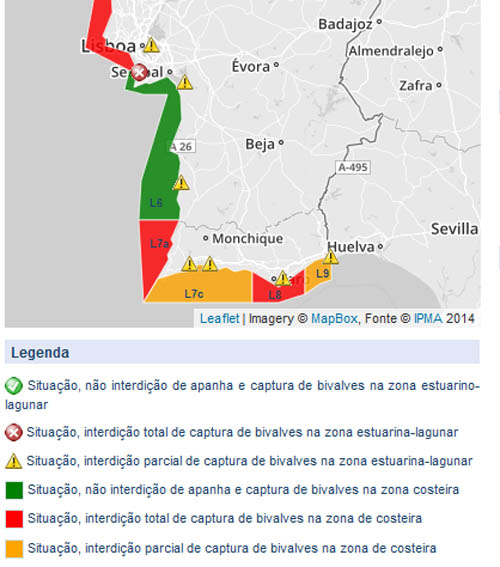 The Vila Real de Santo António City Council will request an audit of the laboratories of the Institute of the Sea and Atmosphere (IPMA) due to the «constant discrepancies» between the data from the IPMA analyzes and the results of the analyzes requested by the VRSA municipality. independent laboratory, with regard to the level of toxins in bivalves on the Algarve coast.
The Vila Real de Santo António City Council will request an audit of the laboratories of the Institute of the Sea and Atmosphere (IPMA) due to the «constant discrepancies» between the data from the IPMA analyzes and the results of the analyzes requested by the VRSA municipality. independent laboratory, with regard to the level of toxins in bivalves on the Algarve coast.
«Once again, the examinations requested by the municipality to the official and duly certified laboratory that carries out the analyzes for the Junta de Andalusia (Spain) contradict the results of the IPMA and reveal that the presence of toxins on the county's coast is lower than the legal minimums, so the harvesting of bivalves should not be prohibited», says Luís Gomes, president of the VRSA City Council.
“If two official institutes present different results for the same type of analysis, we have to demand that the State monitor the situation, assume its responsibilities and investigate the situation to the last consequences, since we are talking about the livelihood of hundreds of families of shellfish gatherers who lose income during periods of interdiction», continues Luís Gomes.
In the same way, the municipality of VRSA is once again demanding that IPMA "speed and transparency" in the dissemination of the results of the analyzes that underlie the bans on the capture and capture of bivalve molluscs in the L9 zone, located at Praia de Monte Gordo.
"At a time when the State's information systems are available on multiple platforms and transparency from institutions is required, we cannot admit that the analyzes that are carried out do not correspond in real time with the values disclosed on the IPMA website, which they report to the months of March and May. This is not taking into account the hundreds of families who are experiencing dramatic situations», notes Luís Gomes.
This position taking takes place after the multiple contacts made by the VRSA municipality with the IPMA and the Secretary of State for the Sea, entities that so far have not presented any suggestions for the problems pointed out by the municipality.
In June, the shellfishers of the Bay of Monte Gordo and the executive of the VRSA City Council had also met with the Secretary of State for the Sea, Manuel Pinto de Abreu, to request a review of the values and conditions for the allocation of compensation funds, in order to minimize the losses of shellfish collectors who are prevented from capturing bivalves.
This week, Olhãopesca announced that it will ask the Secretary of State for the Sea for safety levels or regulatory limits for DSP toxins to be reviewed.
According to the producers' organization, since mid-May the capture and sale of shellfish has been banned in the southern zone due to the presence of biotoxins, but it continues to be captured and sold on the parallel market, and served in restaurants, without any consequences for known health, which leads Olhãopesca to distrust the results of the analyses.


















Comments